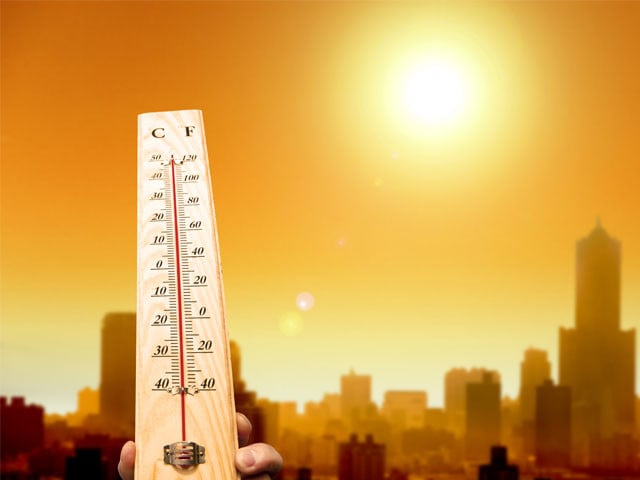A severe heat wave is affecting large parts of the country, with temperatures that reach unusually high and potentially dangerous levels.
The Department of Meteorology of Pakistan (PMD) has issued a warning, forecasting daytime temperatures to remain 5 to 7 ° C above normal in the upper half of the country, including central and superior punjab, Islamabad, Khyber-Pakhtunkhwa, Kashmir and Gilgit-Baltist.
In the southern half, including Sindh, Southern Punjab and Baluchistan, temperatures are expected to remain 4 to 6 ° C above normal.
The extreme heat is being driven by a high pressure system that prevails in the central and southern parts of the country, which probably persists during the next 72 hours.
The highest temperature recorded in the country in the last 24 hours was 48 ° C in Dadu. Other extremely hot places included Rahim Yar Khan and Jacobabad at 47 ° C, and Mohenjo-Daro, DG Khan, Bahawalnagar, Sibi, Nokundi and Bhakkar at 46 ° C. The climatic conditions in most areas have remained dry and hot, with an intense heat that particularly affects the plains.
The forecasts suggest that the cities of Sindh, including Nawabshah, Mithi, Mohenjo-Daro, Sukkur, Hyderabad and Karachi, will continue to experience abrasing temperatures above 40 ° C.
Dadu is likely to remain one of the most popular cities in the next few days, with potentially varied temperatures between 47 and 49 ° C. It is forecast that Karachi will remain hot but less extreme, with maximum temperatures of around 35 to 37 ° C accompanied by high levels of humidity.
Meanwhile, the isolated rain, wind storms or thunderstorms are possible during the night and night in parts of Gilgit-Baltistan, Khyber-Pakhtunkhwa, Kashmir and the northeast of Punjab, including the Potohar region.
Hail storms can also occur in some areas on Monday. However, these weather events are not expected to significantly affect temperatures or provide a broader relief of the heat wave.
Health officials have issued notices that urge the public to avoid direct sunlight, remain inside during peak hours and drink many liquids.
Extreme heat raises serious health risks, especially for vulnerable populations such as children, the elderly and outdoor workers. Emergency services in the affected regions remain on a maximum alert.




